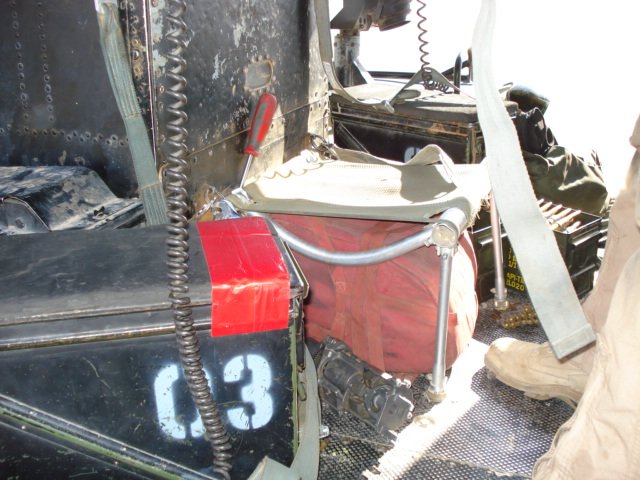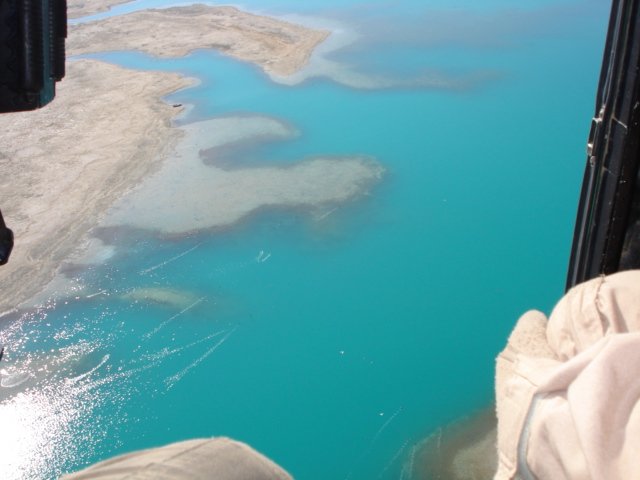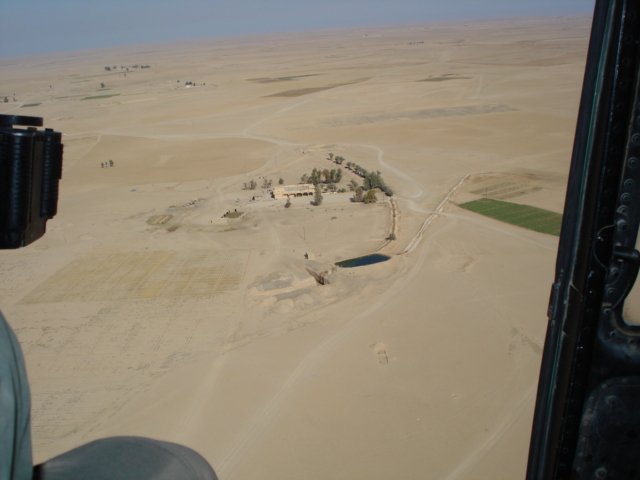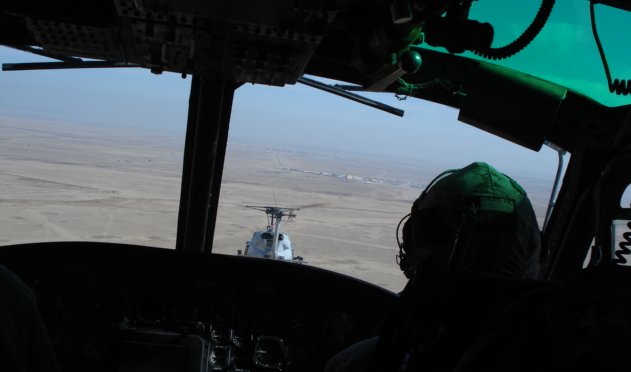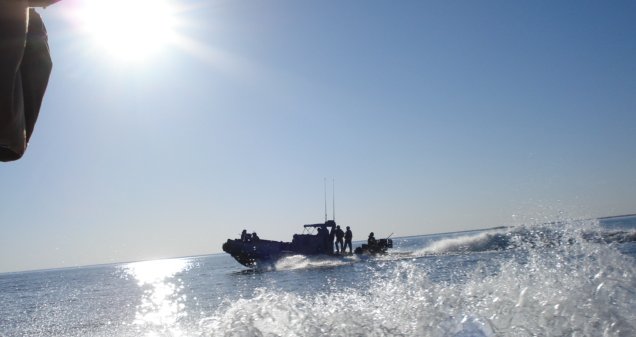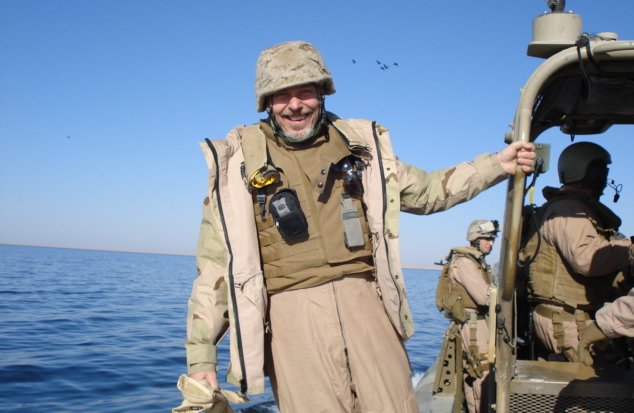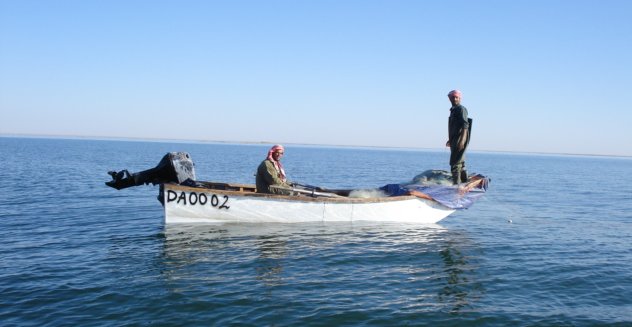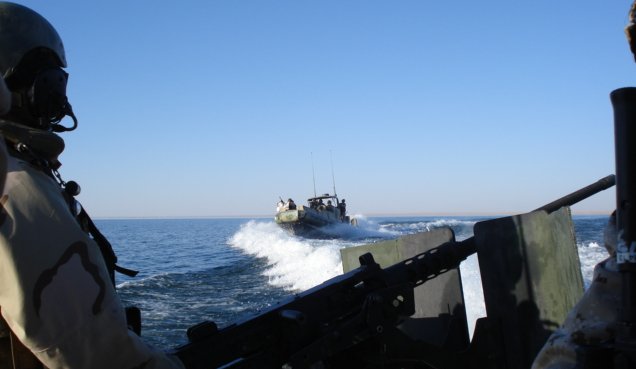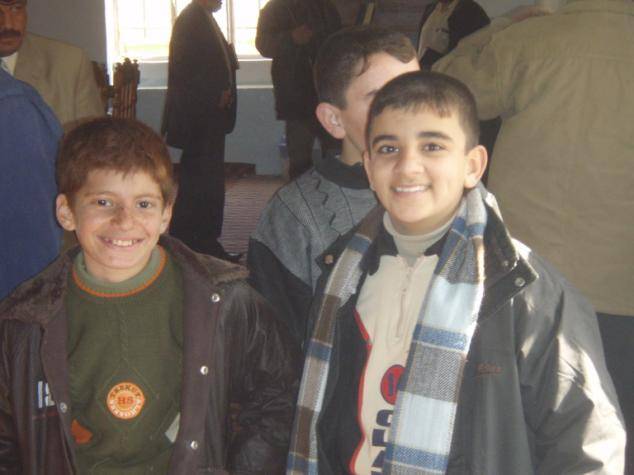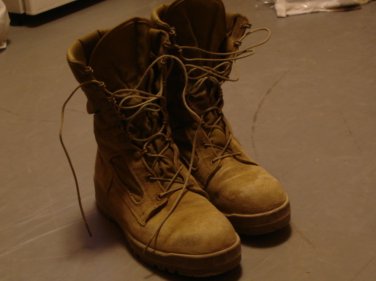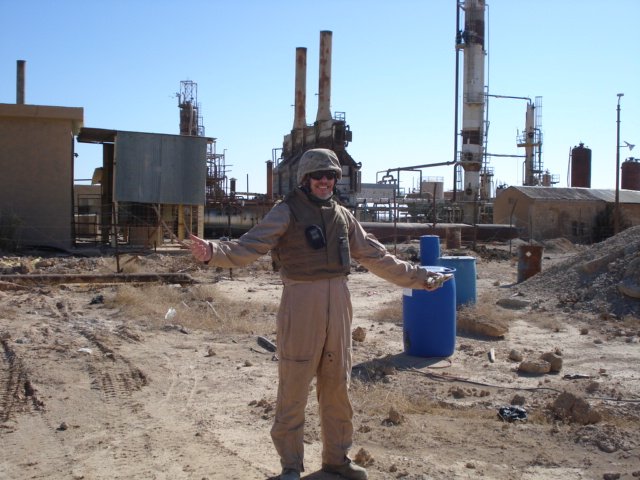
When I was a kid, I used to play in the abandoned industrial area near the RR tracks. It kind of looked like this, except in Milwuakee we had tall grass, bushes and trees.
The K3 refinery and pump station can produce 16,000 barrels a day when it is working, but it is not working and it does not immediately impress the visitor with its orderliness or its up to date technologies. The British built the installation in 1948 and did not use even the cutting edge technologies available in 1948. After that, it was not always managed to high standards; the refinery was run flat out during the last years of Saddam Hussein with minimal maintenance and it has not been in operation at all since September 2005, when a shortage of crude oil shut it down.
Still and all, this place has potential because K3 sits in a favored spot, sort of the Gettysburg of this part of Iraq, at the intersection of rail, road and pipelines as well as in the catchment point among geographical features such as the Euphrates River and Lakes Qadisiya and Tharthar. Oil can come down from Bayji by pipeline, road or rail or up from the south. Oil and oil products can transshipped east to international markets via Syria and Jordan or used to satisfy local demand.
Byproducts of oil refining also have immediate local uses. Crude from Bayji yields a great deal of pitch. Disposing of the pitch is a potential problem, or would be except that local asphalt factories can absorb as much pitch as the refinery can reasonably produce. This asphalt is essential to rebuild and expand the road network in Anbar and in Iraq more generally. Another byproduct is heavy fuel oil (HFO), which is … heavy and hard to move, but would be used as fuel source for a nearby projected thermal electric station at Tahadi, immediately across the Euphrates from K3. Iraq needs the electricity generated at Tahadi, so reopening the refinery and pump station at K3 would go a long way to addressing pressing fuel needs and crude oil either refined or transshipped could provide significant income, especially when energy prices are high.
If this all seems too good to be true, it is. That is why we talk about potential instead of achieved. Oil thieves damage the pipeline in literally hundreds of locations by tapping oil and war damage rounded out the trouble. That is why the plant ran out of crude in 2005. Alternative methods of supplying the refinery with crude, either by truck or rail are more expensive, but viable alternatives if/when the roads and rail lines are secure.
The logical course of action is to create enough redundancy in the system that failure in any one part will not break the whole. According to the plant managers, the refinery has enough storage capacity to keep the operation going for 7-10 days. K3 does not produce gasoline since it lacks the machinery to blend in the octane increasing element. I don’t know much about these things so I trust their word, and the Marines have engineers that verify it (trust but verify.)They also say that for a small investment in repairing and replacing equipment, the refinery can begin to produce naphtha and kerosene almost immediately. Coalition Forces have been working to get the refinery up and running again. Our ePRT has agreed to make small funds available to jump start the process and eliminate little stumbling blocks, with the hope that once the wheels start moving and people see that it works, momentum will build to get other parts of the refinery on line and begin to expand and update operations.
Some people say that for an investment of only around $80 million everything would be working just fine, but a couple million here, a couple million there and pretty soon you are talking about real money. Decisions about these things are made above my pay grade. Besides, this is now an investment for the Iraqis to make. It is their oil after all. The jobs and income from the refining itself and all the related activities could be significant and go a long way toward stabilizing the region, so we all hope the right decisions are made. Getting this thing going again has been the subject of much discussion since I arrived in Iraq and people tell me before that too. I do believe that something will finally be happening at the plant by next week. It is a small step forward, a down payment on future success, and I hope the start of something big.


